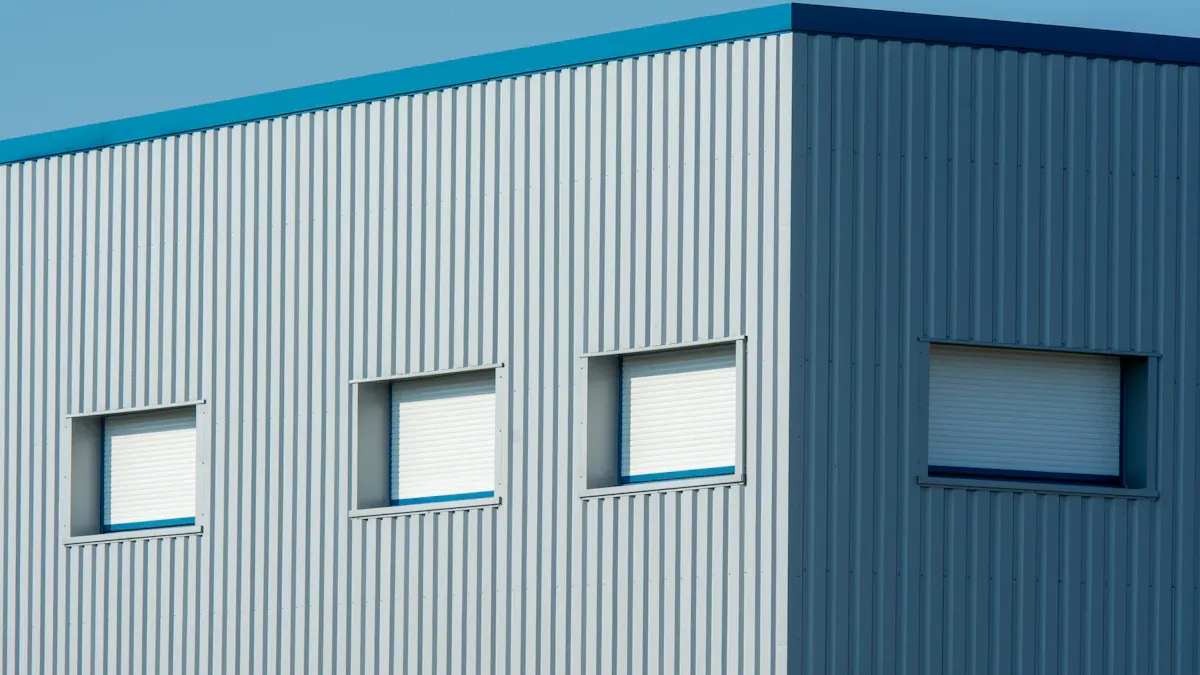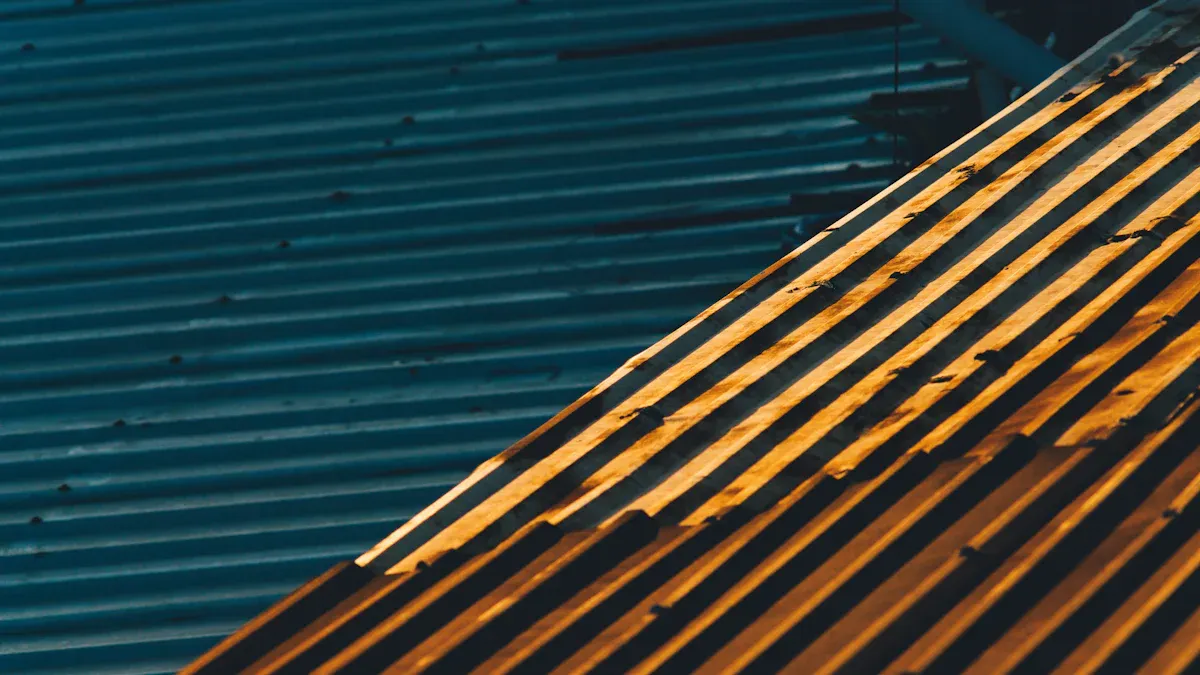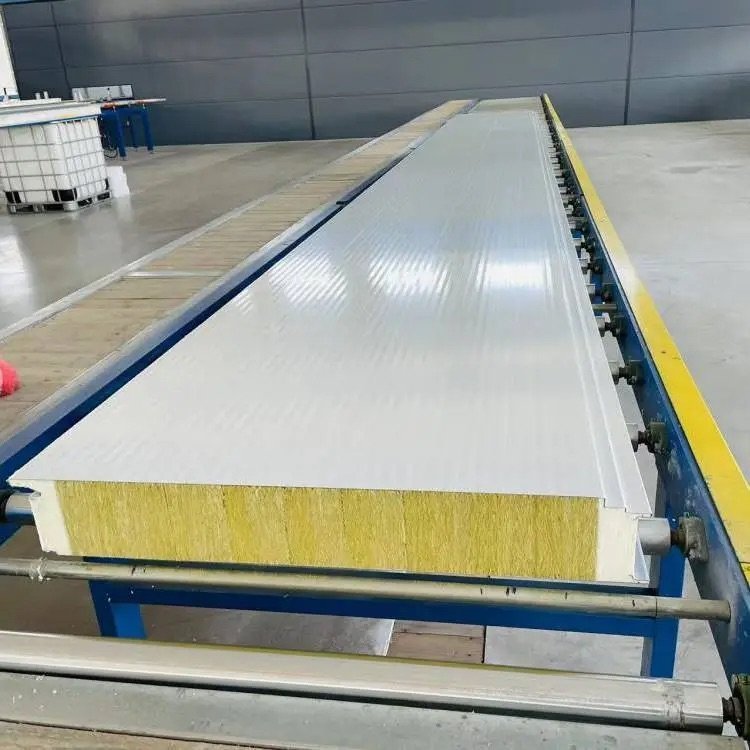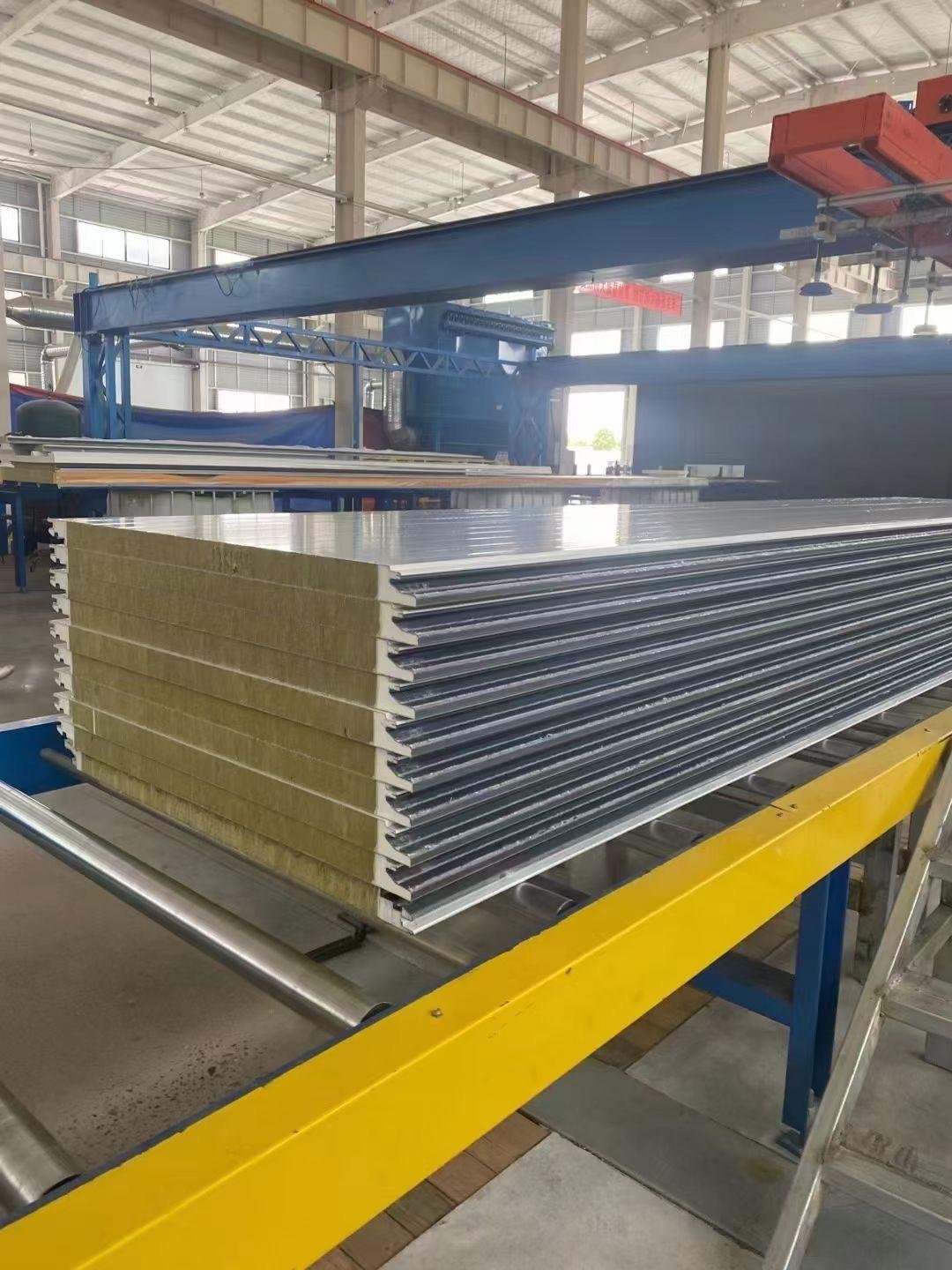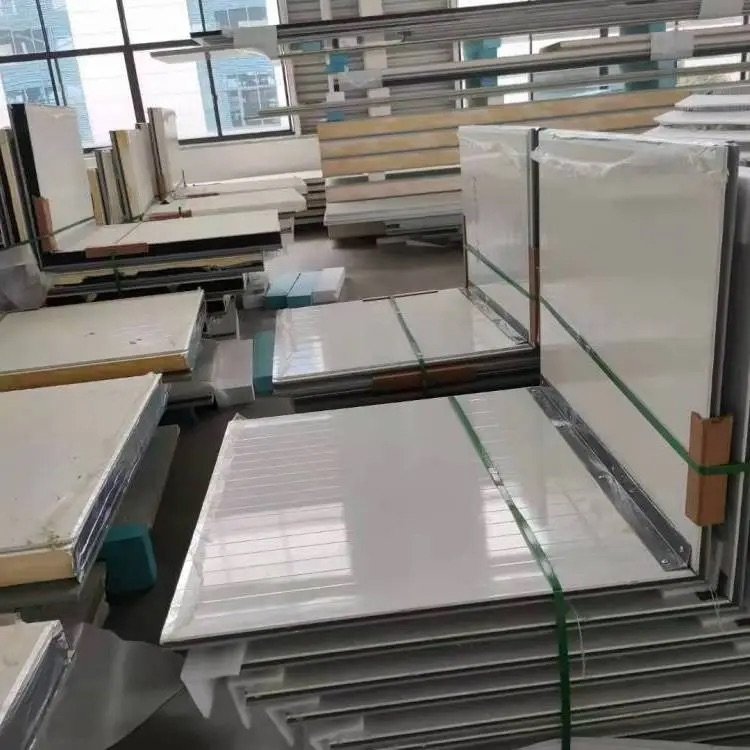
PU panels are important for today’s farm buildings. These panels, made of polyurethane, give great insulation and support. They are used in farms, barns, and other farm buildings to make strong and useful spaces. They keep temperatures steady, which is perfect for animals, crops, and controlled environments. PU panels are tough and last long, even in bad weather. They save money by using less energy and needing little fixing. PU panels help build better and greener farm buildings.
Key Takeaways
PU panels keep farm buildings warm or cool, helping animals and crops stay healthy.
These panels are strong and handle bad weather well, so repairs are needed less often.
PU panels save energy by stopping heat loss, which lowers energy bills for farms.
They are simple to clean and care for, keeping barns and storage areas hygienic for animals.
PU panels can be made to fit farm needs, making farm buildings work better and more efficiently.
Benefits of PU Panels in Agricultural Buildings

Thermal Insulation for Temperature Control
PU panels keep farm buildings warm or cool as needed. They stop heat from moving in or out, keeping temperatures steady. This is great for animals and plants to stay healthy. Newer panels work even better, with improved heat-blocking abilities. They also store heat well, helping control temperature changes. By stopping heat loss, PU panels prevent water drops from forming inside. This keeps the space dry and good for farming.
Durability in Harsh Environments
Farm buildings face tough weather and wet conditions. PU panels are strong and handle these challenges well. Tests show they last through many wet and dry cycles without breaking down. This strength keeps buildings safe and sturdy for years. They don’t wear out easily, so you won’t need to fix them often. Whether it’s a barn or greenhouse, PU panels stay tough in hard conditions.
Energy Efficiency and Cost Savings
PU panels save energy by keeping temperatures steady inside. This means less need for heaters or coolers, cutting energy use. For example, some panels lose much less heat than concrete or brick. This lowers your energy bills over time. They are also light and easy to install, saving on building costs. Using PU panels helps you save money and energy for your farm projects.
Hygienic and Easy to Maintain
Keeping farm buildings clean can be tough, but PU panels help. These panels have smooth surfaces that block dirt, dust, and water. Unlike wood or concrete, they don’t soak up water or grow bacteria. This makes them perfect for barns, animal shelters, or crop storage areas where cleanliness matters.
Tip: Use PU panels in dairy farms or poultry houses. Clean spaces keep animals healthy and products high-quality.
PU panels are simple to clean and need little work. You can wash them with a hose or pressure washer. No need for strong chemicals or special tools. This saves time and lowers cleaning costs.
Here’s why PU panels are easy to maintain:
Rust-Free: They don’t rust or break down from water or chemicals.
Pest-Proof: Their solid build stops pests like mice or bugs.
No Mold: They stop moisture buildup, keeping mold away.
These panels stay strong and look good for years. They don’t fade, crack, or bend, even in bad weather. This means fewer fixes and replacements, giving you less to worry about.
Choosing PU panels makes your farm cleaner and healthier. They save time and money while lasting a long time. It’s a smart choice for any farm building.
Applications of PU Sandwich Panels in Agriculture
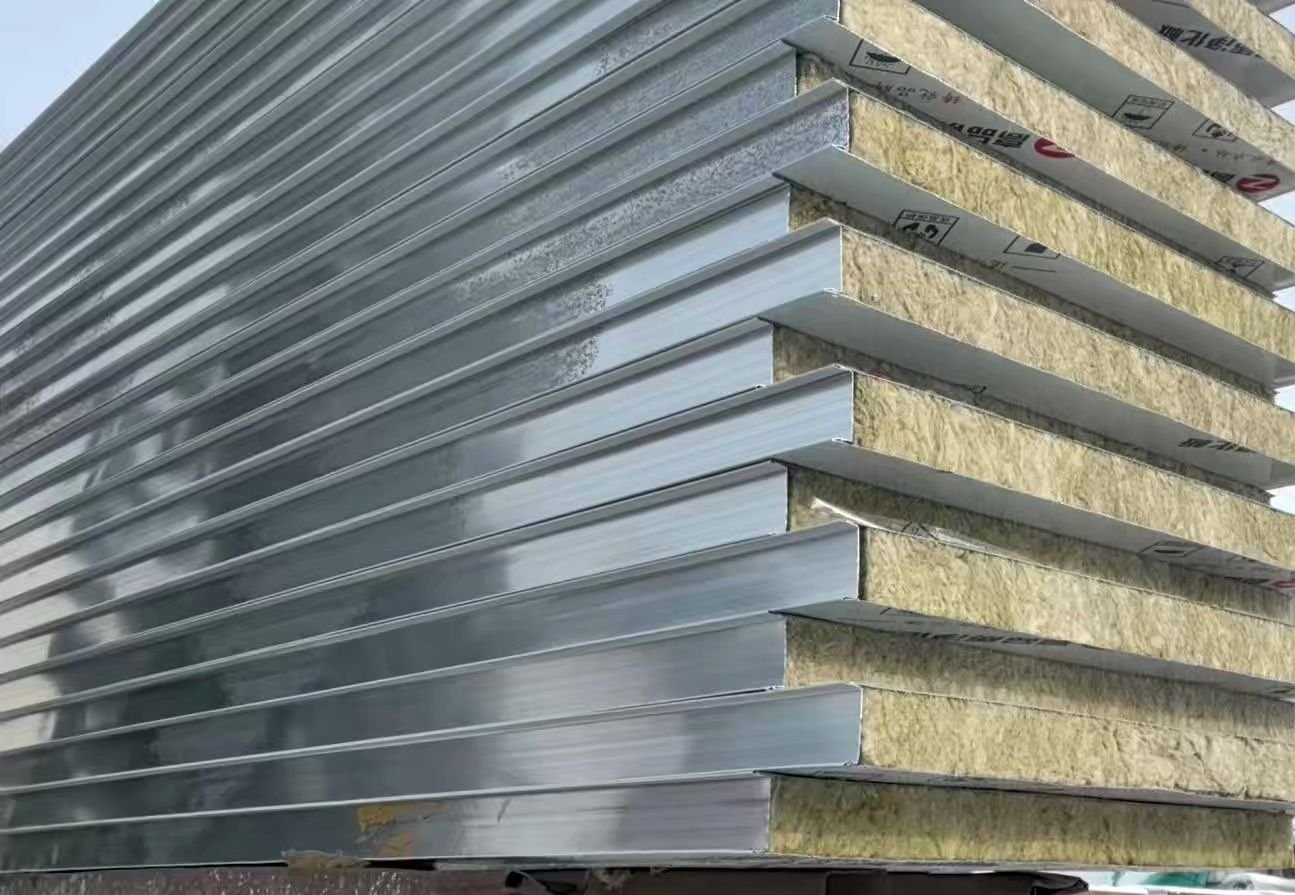
Barns and Livestock Shelters
Barns protect animals from bad weather and predators. PU panels help keep barns warm in winter and cool in summer. This makes animals comfortable, less stressed, and more productive. These panels are strong and handle heavy rain and strong winds. They also stop mold and mildew, keeping the space clean for animals.
PU panels block pests like mice and bugs from entering barns. This lowers the chance of diseases and keeps animals safe. Whether for cows, chickens, or other animals, PU panels are a strong and lasting choice for farm buildings.
Storage for Crops and Equipment
Good storage keeps crops fresh and protects tools from damage. PU panels are great for storage because they control temperature well. They stop crops from spoiling and keep stored items in good condition.
These panels also resist water, protecting crops and tools from leaks or dampness. They don’t catch fire easily and need little upkeep, making them a smart choice. PU panels help create safe and useful storage spaces for modern farms.
Cold Storage for Perishables
Cold storage is important for keeping food like fruits and milk fresh. PU panels work well in cold storage because they keep temperatures steady. They save energy and reduce heat loss, keeping food fresh longer.
PU panels also stop heat from sneaking in, keeping the cold even everywhere. They don’t let bacteria grow, making them great for food storage. Using PU panels in cold storage saves energy and keeps perishables fresh.
Greenhouses and Climate-Controlled Spaces
Greenhouses are important for farming today. They let plants grow well, no matter the weather outside. Adding PU panels to greenhouses makes them work better and greener. These panels keep the inside temperature steady, helping plants grow strong and healthy.
With PU panels, you can build greenhouses that support eco-friendly farming. They save energy by stopping heat from escaping or entering. This means you’ll spend less on heating or cooling. PU panels also stop moisture, so no water drops harm plants. They are tough and last a long time, even in bad weather.
Eco-friendly farming gets better with PU panels. They lower energy use, which helps the planet. Their light weight makes them easy to set up. You can shape them to fit any greenhouse size or design. This helps you create the best space for your plants.
PU panels also help save water. By keeping temperatures steady, they reduce the need for extra watering. This makes them great for sustainable farming. Whether you grow vegetables, flowers, or rare plants, PU panels keep your greenhouse efficient and green.
Tip: Use PU panels with solar panels for a fully green setup. This saves money and helps the environment.
Switching to PU panels for greenhouses is a smart choice. They boost plant growth, cut energy costs, and support eco-friendly farming. With their long-lasting quality, you’ll have a productive and green farm for years.
Types of PU Panels for Agricultural Use
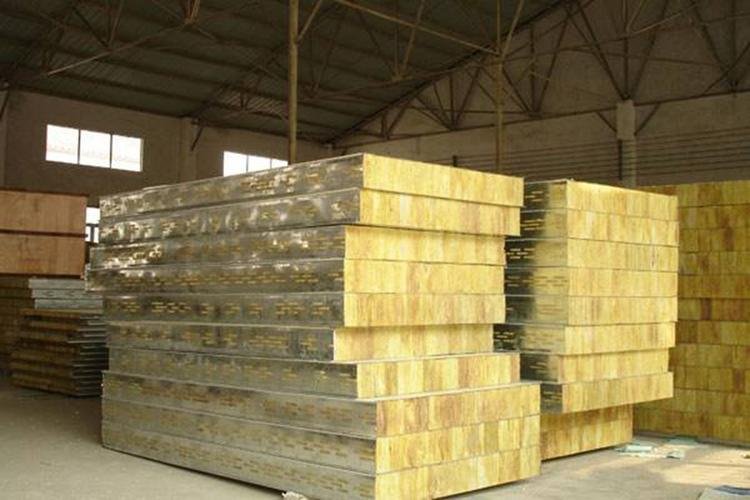
Insulated Wall Panels
Insulated wall panels are great for farm buildings. They keep heat in or out, saving energy. These panels have a polyurethane core, which insulates better than fiberglass. With R-values up to 45, they keep temperatures steady. This lowers heating and cooling costs. They work well in barns, greenhouses, and storage areas.
Another option is Structural Insulated Panels (SIPs). SIPs seal tightly, stopping energy loss and keeping spaces cozy. Studies show SIPs are better than regular walls for insulation and sealing. Using insulated wall panels makes farm buildings energy-efficient all year.
Roofing Panels for Barns
Barn roofs need to handle bad weather and insulate well. Polyurethane core panels are strong and weatherproof. They are light but tough, making them easy to install. These panels can handle heavy rain, snow, and wind without breaking.
Livestock sandwich panels, or agropanels, are made for barns and shelters. They insulate well and keep air sealed, creating a healthy space for animals. Their smooth surface makes cleaning easy and meets hygiene rules.
Fire-Resistant Sandwich Panels
Fire-resistant panels make farm buildings safer. They pass strict fire tests like EN 13501-1 and ASTM E84. These panels slow flames, reduce smoke, and stop burning pieces from falling.
Testing Standard | What It Tests |
|---|---|
EN 13501-1 | Rates how easily materials burn. |
ASTM E84 | Measures flame spread and smoke. |
NFPA 285 | Tests fire safety of walls. |
Certified fire-resistant panels protect buildings during fires. They are strong and reliable, keeping animals and property safe.
Customizable Panels for Specific Needs
PU panels can be adjusted to fit your farm’s needs. You can design these panels for different farm uses. They can match the size and purpose of your building. Whether for a small greenhouse or a big barn, you can make them just right.
Custom PU panels come in many sizes, thicknesses, and finishes. Pick the insulation level based on your weather and farming type. Thicker panels are better for cold places. Thinner ones work well in warmer areas. You can also add coatings to stop rust, UV damage, or chemicals. Choose what fits your farm’s environment best.
Tip: Add anti-bacterial coatings for dairy or poultry farms. This keeps spaces clean and stops germs.
Custom designs make buildings work better and look nice. Panels can fit odd shapes or mix with materials like glass or metal. This makes your farm buildings useful and attractive.
Here’s how custom PU panels helped farms:
Case Study | Application | Performance Metric |
|---|---|---|
Rio Tinto | Pilbara iron ore sites | |
Brazilian agricultural cooperatives | Grain screening in sunlight | Improved grain quality by 25% |
These examples show how custom panels improve strength and results. Picking custom PU panels solves farm problems and boosts efficiency.
Custom PU panels let you control how your buildings work and look. They adjust to your needs and give lasting benefits for your farm projects.
Installation of PU Panels in Agricultural Buildings
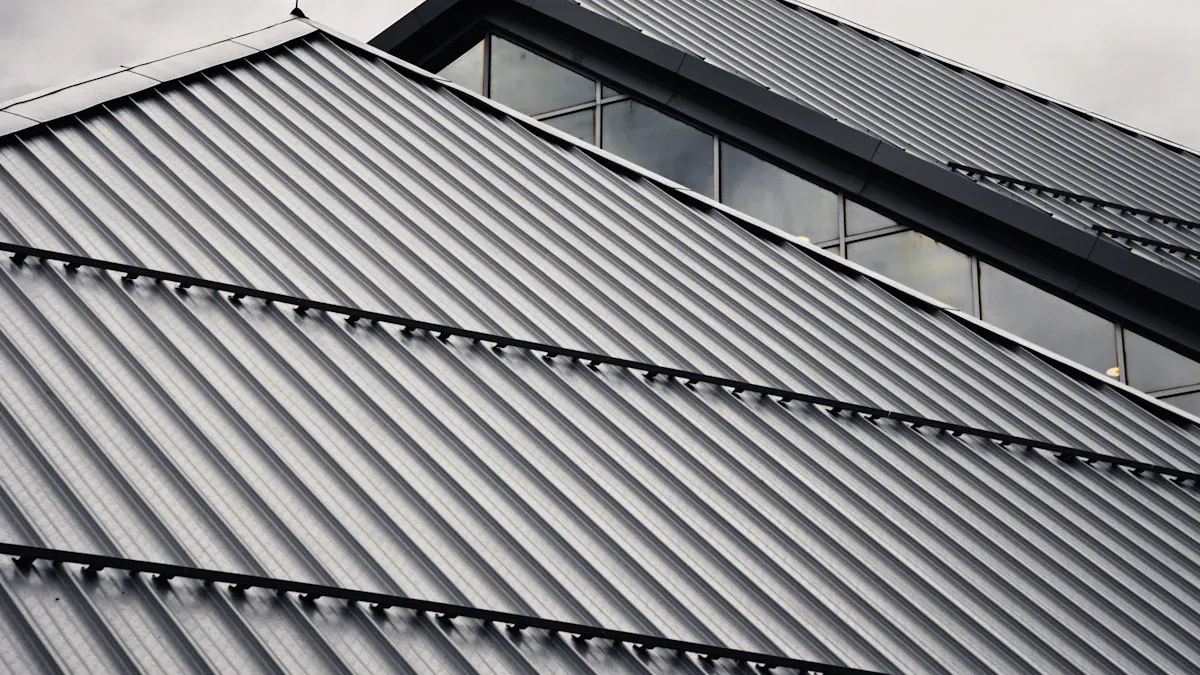
Lightweight and Easy to Handle
PU panels are made to make setup simple. They are light, so lifting and moving them is easy. This is very useful for big farm buildings. These panels are pre-made to fit together quickly.
Main Features of PU Panels:
Light design makes lifting easier.
Pre-made panels fit together smoothly.
One person can install large panels.
Their light weight saves time and cuts labor costs. Fewer workers are needed, and projects finish faster. PU panels are a smart pick for farm building projects.
Quick and Efficient Installation
Putting up PU panels is fast and simple. Their design means fewer workers are needed, speeding up the job. For farm buildings, this means you can use the space sooner.
Benefit | What It Means |
|---|---|
Less help required on-site. | |
Faster Construction | Projects finish quicker. |
Easy to Install | Saves time during setup. |
Cost-Effective | Saves money over time. |
PU panels stay in good shape for years. They don’t turn yellow and keep looking neat, making your buildings look great.
Works with Different Structures
PU panels fit many types of farm buildings. Whether it’s a barn, greenhouse, or storage area, they work well. You can pick sizes and finishes to match your needs.
They also mix well with materials like metal or glass. This helps create strong and nice-looking buildings. PU panels are great for fixing or adding to older buildings too. They improve insulation without needing a full rebuild.
Tip: Use PU panels to upgrade old buildings. They make them warmer and save energy without big changes.
Cost Considerations for PU Panels

Starting Costs vs. Long-Term Benefits
PU panels may cost more at first than other materials. But they save money over time, making them a smart choice. These panels keep indoor temperatures steady, cutting heating and cooling costs.
A financial study shows PU panels are cost-effective. Spending on these panels lowers future operating expenses. The study also shows how they increase profits for farm projects. Choosing PU panels is a one-time cost that saves money for years.
Lower Energy Bills
PU panels save energy by sealing buildings tightly. Air leaks can waste up to 40% of energy. PU panels stop this by blocking air from escaping or entering. This can lower energy bills by 30%.
Spray polyurethane foam (SPF), a type of PU insulation, works better than other materials. It saves energy for up to 67 years and reduces greenhouse gases. Using PU panels cuts costs and helps the environment.
Great Value for Farms
PU panels are a good investment for farms. They protect crops, tools, and animals by creating strong, insulated spaces. Their long life and low upkeep save repair money. They also resist fire and pests, adding extra safety.
You can customize PU panels to fit your farm’s needs. Use them for barns, greenhouses, or storage areas. They are reliable and improve your farm buildings’ efficiency and strength. Investing in PU panels makes your farm better and more durable.
PU panels are a smart choice for farm buildings. They keep spaces insulated, strong, and energy-saving. This makes them great for barns, greenhouses, and more. They last a long time, so you spend less on repairs and energy. This makes them a good investment for farming.
Tip: Try PU panels in one building first. See how they work before using them in more places.
Using PU panels helps farms become greener and more efficient. Explore how these panels can improve your farm buildings today.
FAQ
What are PU panels made of?
PU panels have a polyurethane foam core. This foam is placed between two tough layers like metal or plastic. This design makes them strong and great for keeping heat in or out. They work well in farm buildings.
Can PU panels handle extreme weather?
Yes, PU panels are built to last in bad weather. They can handle heavy rain, snow, and strong winds. Their sturdy design keeps them safe from damage for many years, even in tough climates.
Are PU panels safe for livestock?
Yes, PU panels are perfect for animals. They stop mold, pests, and bacteria from growing. Their smooth surface makes cleaning easy, keeping barns clean and healthy for livestock.
How do PU panels save energy?
PU panels keep heat from escaping or entering buildings. This means less need for heaters or coolers. You use less energy and save money on bills.
Can I customize PU panels for my farm?
Yes, you can change PU panels to match your farm’s needs. Pick sizes, thicknesses, and finishes that work best. You can add coatings to protect against rust, sunlight, or germs. Custom panels make farm buildings better and safer.
Tip: Ask an expert to help you choose the right PU panels for your farm.

